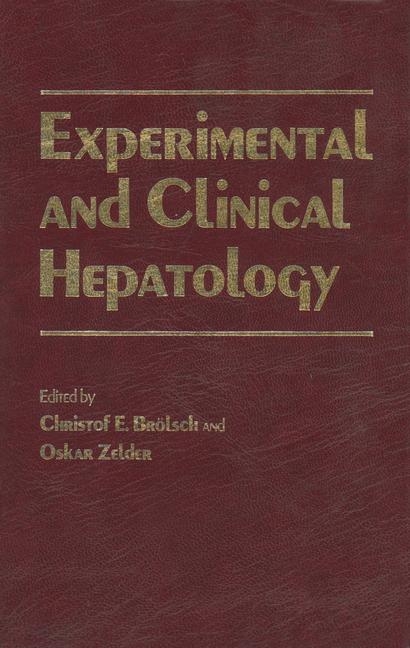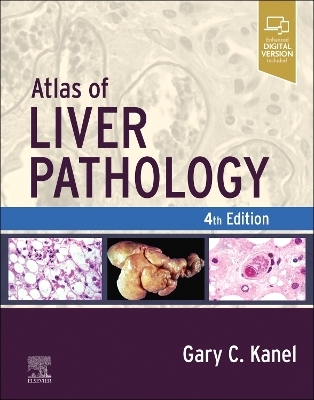
Experimental and Clinical Hepatology
Kluwer Academic Publishers (Verlag)
978-0-85200-929-1 (ISBN)
- Titel ist leider vergriffen;
keine Neuauflage - Artikel merken
This is the fifth symposium on Experimental and Clinical Hepatology to be convened by the organisers, and, in common with the previous four, reflects the importance placed upon continuing discussion by clinical investigators as well as basic physiological and pharmacological researchers. Previous meetings which were held at the Surgical Department of the Philipps University in Marburg were dedicated to problems of direct clinical application, such as haemodynamics of portal hypertension, surgical approach to hepatic tumours, liver regeneration and temporary hepatic support. Clinical investigation was a subject which frequently came under discussion and some of these investigations have since lead to direct improvements in clinical therapy and many patients have benefited as a result. This time, the convocation was called to the Medizinische Hochschule Hannover where remarkable advances in clinical liver trans- plantation have been the most striking event in clinical hepatology. The concensus of the meeting was that while significant clinical progress has been made, a variety of basic problems remained unsolved which will require further investigation. Special attention has, therefore, been given to topics such as acute liver damage, particu- larly within the transplanted liver, to chronic active hepatitis and its spontaneous prognosis, to isolated hepatocytes and their effect on functional support of the liver, to mechanisms of liver circulation which may be altered completely within the transplant and to liver perfusion which is still considered unsatisfactory for subsequent transplantation.
Section 1 Liver Injury.- 1 Changes of the energy metabolism in liver tissue after experimental common bile duct obstruction.- 2 Enzymatic detoxification of endogenous toxins in vitro and in vivo.- 3 On the position of the determination of bile acids in serum (fasting=FBA and after a standardized test meal=PPBA) in the laboratory diagnosis of liver diseases.- 4 On the recognition of hepatotoxic side effects of cyclosporin A (CyA) after liver transplantation (LTX).- 5 Plasma renin activity and renal function in liver cirrhosis before and after liver transplantation.- 6 The role of Tc-99m-IDA-scintiscanning in neonatal jaundice and after surgical treatment of biliary atresia.- Section 2 Chronic Active Hepatitis.- 7 Hepatitis B versus dioxin (TCDD) in the pathogenesis of excess primary liver cell carcinoma in Viet Nam.- 8 Assessment of infectivity in hepatitis B virus infected individuals by detection of HBV and core antigen in serum.- 9 Decreased detoxification capacity of the liver in chronic active hepatitis (observations in 224 patients).- 10 Prognosis of chronic active hepatitis: 10 years follow-up study in 144 patients.- 11 Prognosis of patients with liver cirrhosis and history of variceal bleeding after spleno-renal and mesocaval shunt using two different selection criteria for shunt operation.- 12 On the prognosis of liver cirrhosis.- Section 3 Portal Circulation.- 13 Effect of nitroglycerin on portal hypertension.- 14 The effect of glyceryl trinitrate on the intravascular oesophageal variceal pressure in patients with cirrhosis and portal hypertension.- 15 Is the beta blocking agent metipranolol able to reduce the frequency of recurrences after endoscopic sclerosis because of bleeding esophageal varices?.- 16 Portal drainage for small-bowel grafts: A requirement for successful small-bowel transplantation?.- 17 The effect of portacaval shunt on the 14C02-exhalation from (methyl-14C)-labelled drugs.- 18 Portal hypertension and hemorrhage from esophago-gastric varices—a contraindication for pregnancy?.- Section 4 Isolated Hepatocytes.- 19 Complementation of enzyme deficient mutant rats by auxiliary transplantation of intact hepatocytes: Continuous monitoring of hepatocyte integrety by scintigraphy.- 20 Transfer of hepatocytes and cyclosporin A therapy - induction of specific tolerance?.- 21 Functional assessment of hepatocytes after syngeneic transplantation into rat spleen.- 22 The immunogenicity of isolated liver cells: Comparison of complete liver cell suspensions (LCS) versus liver parenchymal cell suspensions (LPS) in two different allogeneic inbred rat strain combinations.- 23 Membrane expression of autoantigens on mechanically and enzymatically isolated hepatocytes.- 24 Inhibition of collagen biosynthesis in cultured mesenchymal cells of human liver by malotilate: Treatment of patients with chronic active liver diseases, first results.- 25 Lack of hormonal response in liver cells from rats with extrahepatic cholestasis.- 26 Regulation of the glucose/glucose-6-phosphate cycle in cultured hepatocytes by insulin and glucagon.- 27 Primary cultures of rat hepatocytes as a model for the study of metabolite dependent induction of liponeogenic enzymes.- 28 Increase in the anti-infectious capacities of Kupffer cells by in vitro treatment with endotoxin.- 29 The role of Kupffer cells, endothelial cells, and hepatocytes in uridine catabolism of rat liver.- Section 5 Liver Perfusion.- 30 Perfusion of the isolated rat liver—technique and application in pharmacology.- 31 Drug-derived 14C02 formation—a method to determine the metabolic capacity of the isolated perfused rat liver.- 32 Isolated liver perfusion in the rat - in vivo model.- 33 Inhibition of urea and glutamine release and of ammonia uptake in the perfused rat liver by stimulation of sympathetic hepatic nerves.- 34 Zonation of carbohydrate metabolizing enzymes in liver of diabetic rats.- 35 Inhibition of glucagon-stimulated glucose release in the perfused rat liver by stimulation of the parasympathetic hepatic nerves.- 36 Inhibition of ketogenesis by stimulation of the hepatic sympathetic nerves in the perfused rat liver.- 37 Extracorporeal perfusion with baboon liver in acute hepatic failure.- 38 On pathophysiology of preservation damage in liver transplantation.
| Erscheint lt. Verlag | 31.1.1986 |
|---|---|
| Zusatzinfo | 416 p. |
| Verlagsort | Dordrecht |
| Sprache | englisch |
| Gewicht | 640 g |
| Themenwelt | Medizinische Fachgebiete ► Innere Medizin ► Hepatologie |
| ISBN-10 | 0-85200-929-1 / 0852009291 |
| ISBN-13 | 978-0-85200-929-1 / 9780852009291 |
| Zustand | Neuware |
| Haben Sie eine Frage zum Produkt? |
aus dem Bereich


